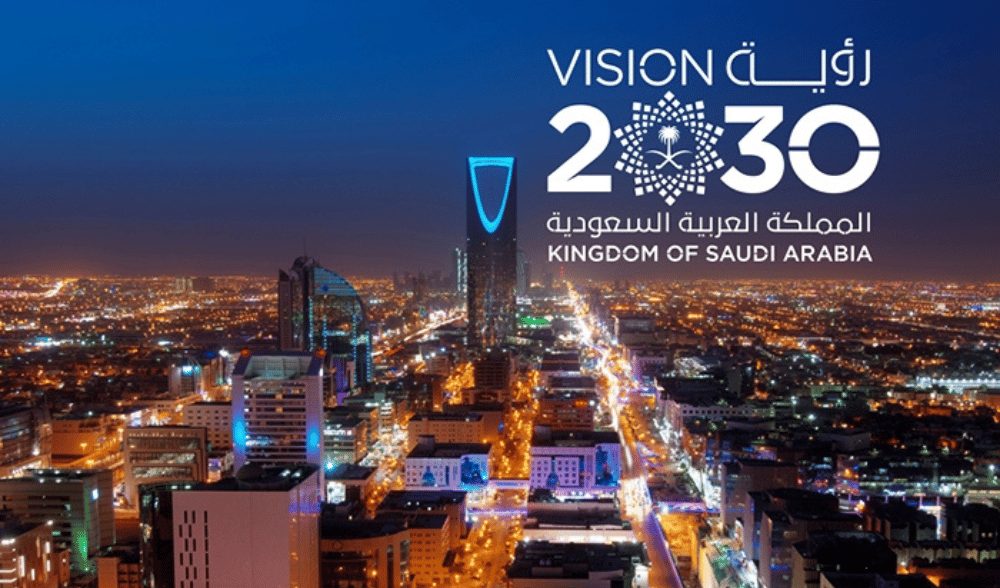
Words matter. Certain words like “welcome” are uniquely powerful, particularly when backed up by actions. The latest example of this is Saudi Arabia.
Words matter because they have the power to shape our perceptions, influence our emotions, and drive our actions. They allow us to articulate and express our thoughts, ideas, and experiences. They enable us to convey complex concepts, share knowledge, and communicate our unique perspectives with others.

Words Can Inspire, Motivate, and Uplift
Words also possess the ability to evoke powerful emotions within individuals. They can inspire, motivate, and uplift, or they can hurt, provoke, and incite negativity. By selecting the right words, we can create a positive and supportive environment, build empathy, and foster deeper connections with others. This is the concept behind the industry brief: The New Tourism Lexicon: Rewriting Our Industry’s Narrative. From that brief, “If we are going to be successful in changing the narrative surrounding our industry, it starts with a values-based approach. That means talking to stakeholders in a manner that is simple and emotional and connects their values to your organization.”
The words we choose can shape how others perceive and interpret information. Different word choices can evoke different emotions, attitudes, and associations. As political consultant Frank Luntz wrote in his book Words That Work: It's Not What You Say, It's What People Hear, “You can have the best message in the world, but the person on the receiving end will always understand it through the prism of his or her own emotions, preconceptions, prejudices, and preexisting beliefs. It's not enough to be correct or reasonable or even brilliant. The key to successful communication is to take the imaginative leap of stuffing yourself into your listener's shoes to know what they are thinking and feeling in the deepest recesses of their mind and heart. How that person perceives what you say is even more real, at least in a practical sense, than how you perceive yourself.”
The use of specific words can influence whether an idea is perceived positively or negatively, leading to shifts in beliefs, opinions, and decision-making processes. When I was on the majority staff of the Illinois House of Representatives, we spent a considerable amount of time writing analyses of all legislation. Legislators don’t read legislation, they read analyses; staff reads legislation. When I had to describe major legislation that our side supported, I would call it comprehensive. If our side opposed the bill, it was described as complex. Same bill, similar words, different perceptions.
The way we frame and present information through language can shape how others perceive and respond to it. Effective use of persuasive language is like travel itself. They can engage and convince others, leading to changes in attitudes, behaviors, and actions. In summary, words are not just symbols or sounds; they are the tools we use to communicate, connect, and influence. By being mindful of our word choices, we can foster effective communication, promote understanding, and create positive impact in our personal and professional interactions.
The Importance of the Word Welcome
The word "welcome" has a considerable impact. At its most fundamental level, "welcome" is an expression of hospitality. It suggests that an individual is gladly received and accepted into a particular space, whether that's a home, a community, or a country.
"Welcome" also communicates acceptance. When we tell someone they're welcome in our space, we're implicitly stating that we accept them as they are. This affirmation can be incredibly powerful, especially for those who may not always feel accepted or included. The word implies openness and willingness to include others, regardless of their background, culture, or personal characteristics. This is why Destinations International’s working definition of equity, diversity and inclusion underscores our commitment to creating spaces and places in the travel industry that promote a true sense of “welcoming and belonging.”
“Welcome” is a universally understood term. No matter where you go in the world, the act of welcoming is understood and appreciated. The sentiment behind the word transcends language and cultural barriers. And, perhaps most importantly, it is capable of setting the tone for future interactions. It is the first step of many. It can create a positive first impression, leading to the development of more productive and harmonious relationships.

It is in the sense of the word that when we welcome someone, we demonstrate respect for them, we show that we value their presence and what they bring into our space that we understand the importance of the new developments in The Kingdom of Saudi Arabia. The Kingdom, as part of their Vision 2030, has truly ambitious goals to grow its tourism industry in the coming years, beyond the religious tourism that has defined the country’s traditional tourism efforts. This is all part of a drive to diversify the economy before the day when fossil fuels are no longer a primary fuel option. The result is investments in tourism to a level we’ve never seen before in any country, from amazing new destinations to a second new airline. The plans are staggering. What China did for cities over the last few decades, Saudi Arabia is doing for destinations.
It is worth noting that among many foreigners, Saudi Arabia has a bit of a reputation issue. They have questioned their commitment to a welcoming and belonging environment. While many places, even a place like Dubai, are seen as welcoming, Riyadh has been a different story. But Saudi Arabia is changing. Slowly by some people’s standards, rapidly by others. It still has a long way to go but those first crucial steps seem to be falling into place. They understand the importance of the word “welcome” and even more importantly, embracing the concept in their actions.

Adding to the website change, a Saudi Tourism Authority spokesperson recently said in a statement: “Everyone is welcome to visit Saudi, provided that they follow and respect our culture, traditions and laws, as you would when you visit any other country in the world. Like other governments, we do not ask visitors personal questions and we respect the right to privacy.”
Whether LGBTQ travelers will feel comfortable traveling to the Kingdom is yet to be seen. But from my conversations with those that have traveled, the effort seems sincere.
Still, others may wait for more assurances from the Saudi authorities. It is still technically illegal for two people who are not married to share a hotel room. In practice enforcement of this is nonexistent for non-Saudis. And sex outside of marriage is still a crime (marriage between two people of the same sex is not an option in Saudi Arabia therefore, sex between people of the same sex is illegal) but authorities have stopped asking questions about what happens behind closed doors. It is still unclear where the welcome line is. Most likely they will wish for you to respect the traditional culture and not show your queerness. For now, I do not have a problem with this (though for the record I have friends that do).
From my point of view, anything on the general tourism website operated by the government about LGBT travelers is a good starting point. It is farther than any other similar countries have been willing to do go. And it represents a strong and decisive step by the Kingdom. It is a true statement of “welcome.”


